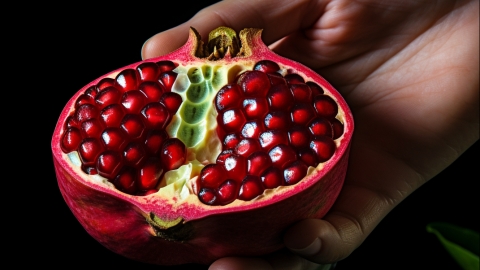Can I eat pomegranate when I have a cold?
Generally speaking, people with a common cold can eat pomegranates, but should do so in moderation. Detailed explanations are as follows:

Pomegranates are rich in vitamin C, which helps enhance the body's immunity, assist in fighting the pathogens causing the cold, and alleviate discomfort associated with colds. Meanwhile, pomegranates have abundant water content and contain certain organic acids, which not only replenish fluids easily lost during a cold but also improve poor appetite commonly experienced during a cold, helping the body obtain more nutrients. Additionally, various minerals in pomegranates can support normal metabolic functions during a cold, aid in recovery, and relieve the fatigue often associated with colds.
When consuming pomegranates, care should be taken to choose ripe and fresh ones, avoiding unripe, sour, or astringent fruits that may irritate the throat. It is recommended to eat the arils directly; if experiencing significant sore throat, a small amount of the arils may be steeped in water, but sugar should not be added. During a cold, consumption should be moderated, as excessive intake may burden the gastrointestinal system, particularly when diarrhea is present. If cold symptoms are severe or persist without improvement, timely medical attention should be sought rather than relying solely on eating pomegranates to alleviate the condition.






